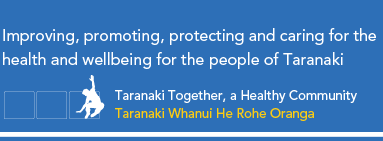Parents of rural pre-schoolers warned about STEC bacteria
23 May 2017
Taranaki DHB’s Public Health Unit is warning parents of rural pre-schoolers about a nasty toxin producing bacteria that spreads easily and can have life threatening consequences, especially for young children living on and around farms who are most at risk.
Shiga toxin producing E.coli (STEC), also known as Verotoxin producing E.coli (VTEC) is a relatively new illness to New Zealand, first detected in 1993. Taranaki has one of the highest rates of STEC, which causes a severe gastrointestinal illness with nearly half of cases ending up in hospital.
The Public Health Unit (PHU) has created an important new resource to educate parents about this type of E.coli in the form of a brochure and poster, highlighting what symptoms to be aware of and how to help prevent STEC from spreading.
Dr Jonathan Jarman, Taranaki DHB’s Medical Officer of Health, said “STEC bacteria are carried in the intestines of cattle and other animals. Young children on farms with cattle are at high risk of catching this disease.”
Other risk factors include drinking unpasteurised milk or untreated water, eating undercooked or contaminated food, swimming in water where you can’t see your feet and being in contact with people who have the infection.”
The main symptoms of STEC include watery diarrhoea, blood in the diarrhoea, severe stomach pains and vomiting.
Dr Jarman said “Young children with STEC illness are more likely to get a severe complication called Haemolytic Uraemic Syndrome (HUS) which could damage their kidneys. On average we get a child with this complication once a year in Taranaki.”
STEC contamination can also be found in places such as muddy puddles near farm animals or animals drinking troughs, farm clothing and footwear, and in dogs and other farm animals going inside a house.
Dr Jarman warns because STEC spreads easily, anyone with the STEC infection should stay away from childcare, school or work until being cleared by their doctor.
“Anyone showing signs of the STEC infection should seek advice from their doctor before taking any medication for this illness as some may even make it worse.”
The PHU encourage prevention of this infection with regular hand washing before eating, after helping out on a farm and after touching animals. Other ways to prevent infection include cooking meat thoroughly to kill any STEC bacteria and boiling untreated water and raw milk before drinking it.
STEC resources are now available from the PHU’s resource room by emailing resource.room@tdhb.org.nz or on our website www.tdhb.org.nz
ENDS
For more information please call
Beth Findlay-Heath
Communications Advisor
021 665 017


